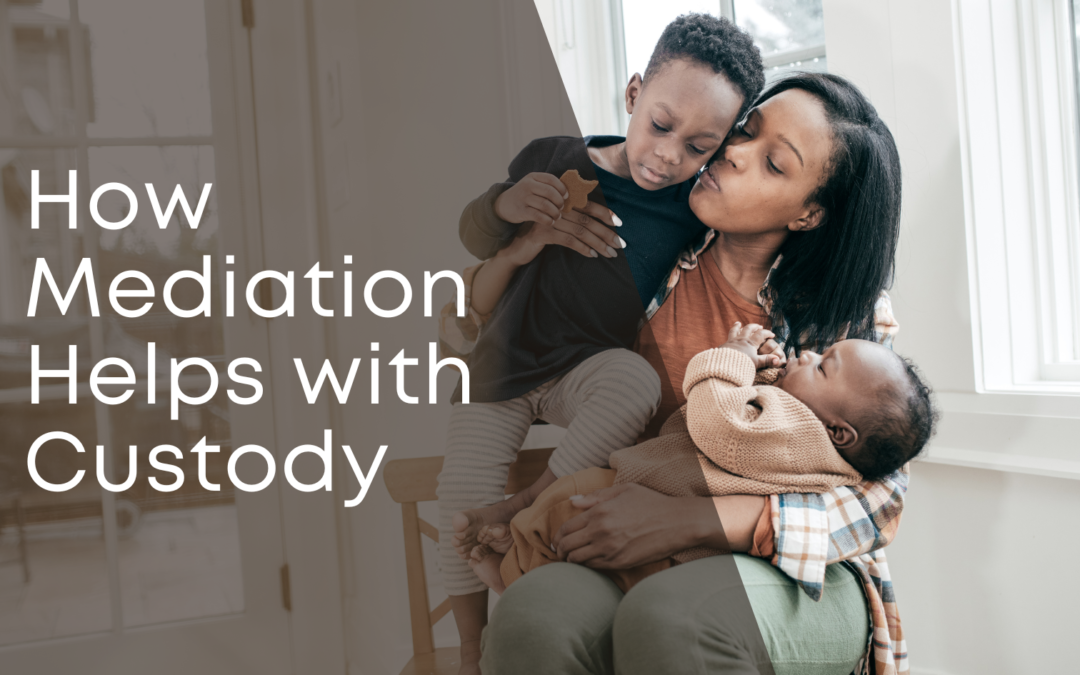Imagine this: You’re sitting across from your ex-spouse, both of you tired from weeks of back-and-forth about what will happen to the most important part of your life—your children. The thought of not seeing them every day stings, and the fear of making the wrong decision looms over you. You’re not alone. Many parents face the same questions during divorce: How will custody work? How often will I see my children? Will they be okay? Custody arrangements can feel like an unsolvable puzzle—but it doesn’t have to be this way.
A New Way: Divorce Mediation for Better Custody Outcomes
I’m Steven Unruh, a divorce mediator with more than 30 years of experience. I’ve worked with countless families struggling through custody arrangements, and I understand how hard this decision is for you. The good news is, there’s a way to approach custody that keeps the focus on what truly matters—your children. Divorce mediation offers a collaborative approach to creating a custody plan that works for everyone involved, without the added stress of a courtroom battle.
1. Prioritize Your Child’s Needs First
The number one priority in any custody arrangement should be the well-being of your children. Mediation allows both parents to step back from the legal wrangling and focus on what’s best for the kids. Studies show that children do better when both parents actively participate in their lives, even after divorce. Mediation helps create a parenting plan that ensures both parents remain involved without forcing children to choose sides.
2. Create a Flexible, Personalized Plan
One of the biggest advantages of mediation is the ability to tailor a custody plan to your unique situation. No two families are the same, and your custody arrangement shouldn’t be either. A 2018 survey by the American Psychological Association revealed that 70% of parents who used mediation reported higher satisfaction with their custody arrangements compared to those who went through litigation. Mediation gives you the flexibility to create a plan that works with your schedules, values, and your children’s needs.
3. Reduce Stress and Conflict
Courtroom battles are notoriously stressful for both parents and children. Mediation, on the other hand, offers a less adversarial approach. By working together in a neutral environment, you and your ex-spouse can resolve custody issues more peacefully. Research shows that high-conflict divorces have a negative impact on children’s mental health, but mediation significantly reduces that conflict.
4. Save Time and Money
Custody disputes that drag through the courts are not only emotionally taxing but also financially draining. On average, a litigated divorce costs between $15,000 to $20,000, according to LegalZoom. In contrast, mediation is often a fraction of the cost and can be completed in a matter of weeks rather than months. Why spend more time and money fighting when you can reach a fair agreement faster?
5. Lay the Foundation for Better Co-Parenting
The decisions you make now will shape your future co-parenting relationship. Mediation fosters communication, setting the stage for a cooperative parenting dynamic after the divorce is finalized. When parents can communicate effectively, children are less likely to experience the negative effects of divorce, such as anxiety or academic struggles.
Take Control of Your Custody Plan Today
You might be wondering if mediation can really work for your situation, especially if things with your ex-spouse are tense. But the truth is, mediation can work in almost any scenario, even if you and your ex have a high level of conflict. A skilled mediator knows how to facilitate productive conversations and keep the focus on the children’s needs, not past grievances. While mediation may not be a perfect fit for every couple, it’s an option worth considering for most parents.
Custody decisions don’t have to be overwhelming, stressful, or unfair. With divorce mediation, you can create a plan that puts your children first, saves you time and money, and builds the foundation for a healthier co-parenting relationship. I’m Steven Unruh, and with over 30 years of experience in divorce mediation, I’ve helped countless families navigate these difficult decisions with confidence and care. Ready to take the next step? Contact me today to learn how mediation can make your custody process smoother and more manageable.
Your children deserve the best, and so do you. Let’s create a custody arrangement that works for everyone—without the conflict, stress, and uncertainty.


Recent Comments